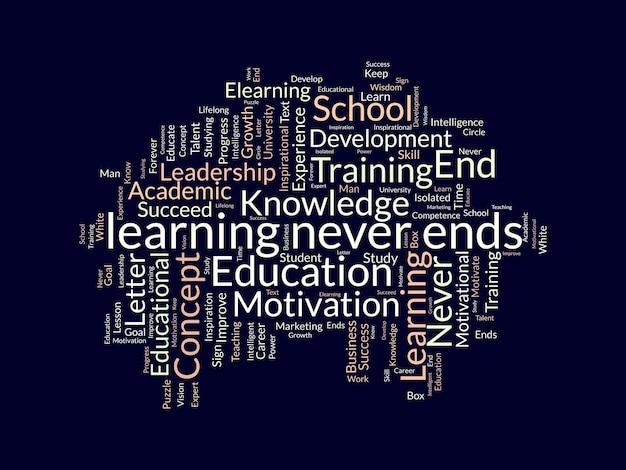Unlocking Success as a Back-End Developer in EdTech: Key Skills & Career insights
Are you passionate about technology and education? As the demand for digital learning and educational management systems grows, back-end developers are becoming invaluable in universities, colleges, and schools worldwide. Discover how you can build a meaningful and accomplished career as a Back-End Developer in EdTech, explore the core skills you need, and gain practical insights to stand out in today’s competitive job market.
Introduction: The Critical Role of Back-End Developers in EdTech
The education sector is experiencing a digital change, with learning platforms, student information systems, and virtual classrooms at the forefront. Behind these seamless experiences are talented back-end developers who ensure robust functionality, security, and scalability. These professionals architect and maintain the servers, databases, and APIs that power modern educational technology. If you’re seeking a tech career that has direct social impact,focusing your job search on EdTech roles at universities,colleges,and schools can be highly rewarding.
The EdTech Job Market: Opportunities at Universities, Colleges, and Schools
The EdTech industry is booming. Educational institutions are seeking skilled back-end developers for:
- Learning Management Systems (LMS)
- Assessment and grading automation tools
- Student and staff portals
- Collaboration and dialog platforms
- Data analytics and reporting solutions
Whether you join a large university’s IT department, a school district’s tech team, or an EdTech startup serving colleges, your expertise will be in high demand. Increasing a school’s digital capacity is essential for hybrid learning environments, remote instruction, and personalized education pathways.
Essential Skills for Back-End Developers in EdTech
1. Programming Languages
- Python (especially with Django or Flask for education platforms)
- Java (used in many institutional applications)
- PHP (common in older or open-source LMS like Moodle)
- Node.js (popular for modern, scalable APIs)
- Ruby on Rails (utilized in prototyping and agile progress)
2. Database Management
- Experience with SQL databases (MySQL, PostgreSQL, MS SQL Server)
- Familiarity with NoSQL solutions (MongoDB, firebase) for real-time educational data applications
- Database security and privacy best practices aligned with student data protection regulations
3. API Design and Integration
- Developing and maintaining RESTful APIs for interoperability among EdTech tools
- Understanding of OAuth and modern authentication protocols for secure data exchange
- Integrating third-party services (video conferencing, grading tools, digital libraries)
4. security and Compliance
- Implementation of data privacy standards (FERPA, GDPR) in educational environments
- Regular security audits and vulnerability assessments to protect sensitive information
- Knowledge of access control and secure user authentication in multi-user systems
5. Cloud Computing and DevOps
- Deployment and maintenance of education solutions on cloud platforms (AWS, Azure, Google Cloud)
- Automation using CI/CD pipelines for rapid and reliable updates
- Scaling applications to support surges in usage during exams, admissions, or remote learning periods
6. Problem-Solving and Communication
- Ability to translate educational needs into technical specifications
- Strong communication with front-end developers, instructional technologists, and educators
- Collaborative approach in cross-functional teams
Benefits of Working as a Back-End Developer in EdTech
Pursuing a back-end developer job in the education sector offers unique rewards:
- Social Impact: Your technical skills contribute directly to improved teaching and learning experiences.
- Job Stability: Educational institutions offer long-term, mission-driven career opportunities.
- Continuous Learning: Exposure to cutting-edge technologies and innovative learning models.
- Flexible Work Options: Many colleges and universities allow hybrid or fully remote tech positions.
- Professional Growth: Opportunities to lead projects, mentor junior staff, or move into IT leadership roles.
How to Stand Out in EdTech Job Applications
Competition for top EdTech roles can be fierce, but you can boost your candidacy by:
- building a portfolio that includes code samples, contributions to open-source LMS projects, or EdTech-focused hackathon work.
- Certifying your expertise with recognized credentials in Python, AWS, or data privacy regulations.
- Demonstrating your understanding of education workflows by describing projects where you automated processes for teachers or administrators.
- Highlighting soft skills like team collaboration, problem-solving, and your passion for improving educational outcomes.
- Staying up-to-date with emerging EdTech trends, including AI-driven personalized learning, analytics, and mobile-first education.
Practical Tips for Aspiring EdTech Back-End Developers
- Gain Relevant Experience: Volunteer to build or maintain a school website, help with digital grading tools, or contribute to educational non-profits in need of tech support.
- Stay Current with Compliance: Familiarize yourself with FERPA, COPPA, and local data protection laws affecting student information.
- Learn from the User’s Outlook: Attend education-focused webinars or shadow teachers to understand their pain points.
- Network with EdTech Professionals: Join online communities or events dedicated to educational technology careers.
- Create Educational Content: Blog about your experiences,or share case studies on linkedin to showcase your thought leadership.
career Pathways and Advancement
Back-end developers in EdTech can pursue various professional paths, including:
- EdTech Software engineer – focus on large-scale back-end systems
- DevOps Engineer – optimize deployments and infrastructure
- EdTech Product Manager – transition into technology leadership
- Security Specialist – ensure educational data remains protected
- Instructional Technology Lead – bridge the gap between teaching and tech
continuous professional development, mentorship, and hands-on projects can definitely help you accelerate your growth in the EdTech sector.
Conclusion: Shape the Future of Learning as a Back-End Developer in EdTech
Pursuing a career as a back-end developer in the education technology sector offers the chance to merge technical expertise with purpose-driven work. By honing programming skills, understanding the nuances of educational systems, and demonstrating a commitment to secure and scalable digital solutions, you can unlock meaningful opportunities at universities, colleges, and schools. The EdTech landscape is continually evolving,making it an exciting time to join this impactful field. Start building your skills, expand your network, and get ready to transform education from the inside out!

